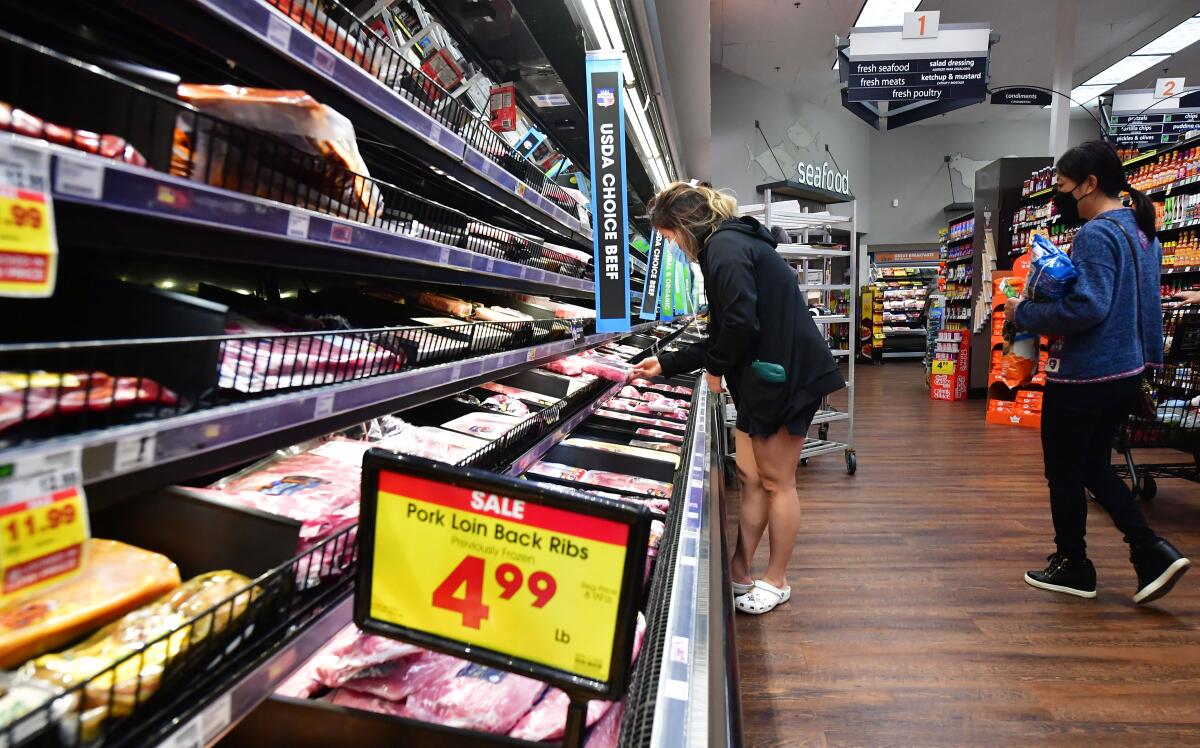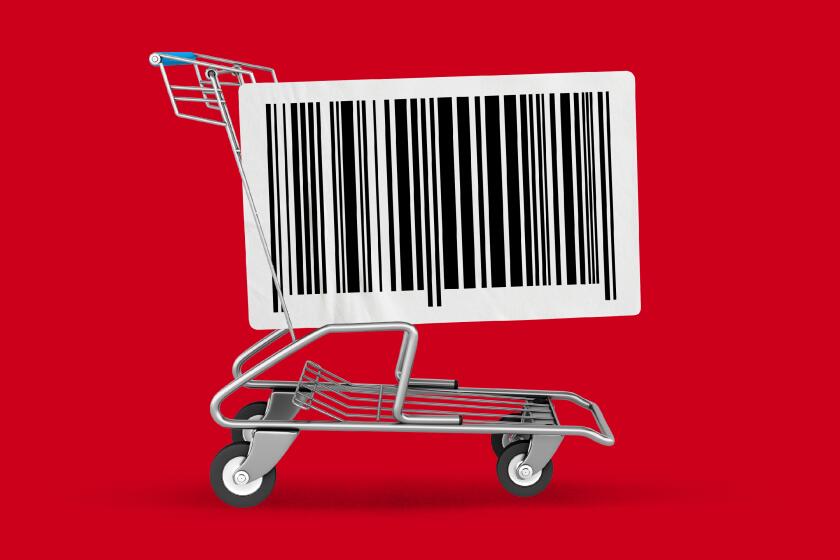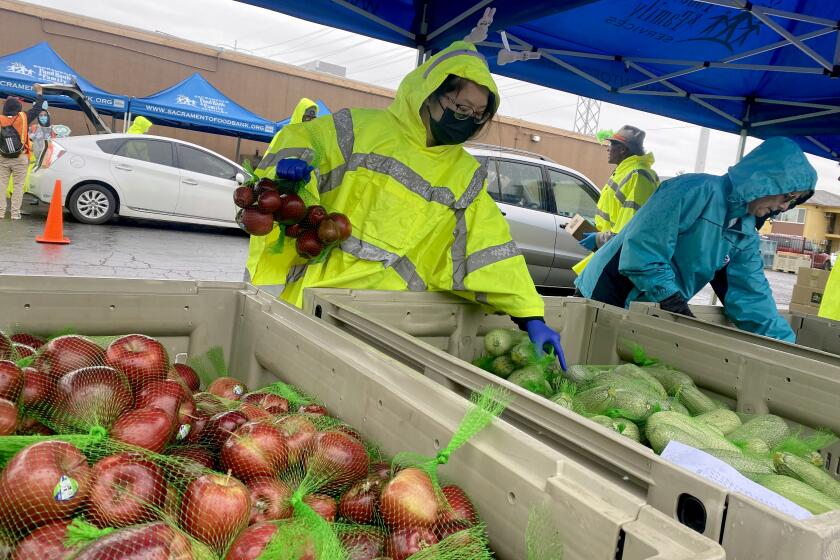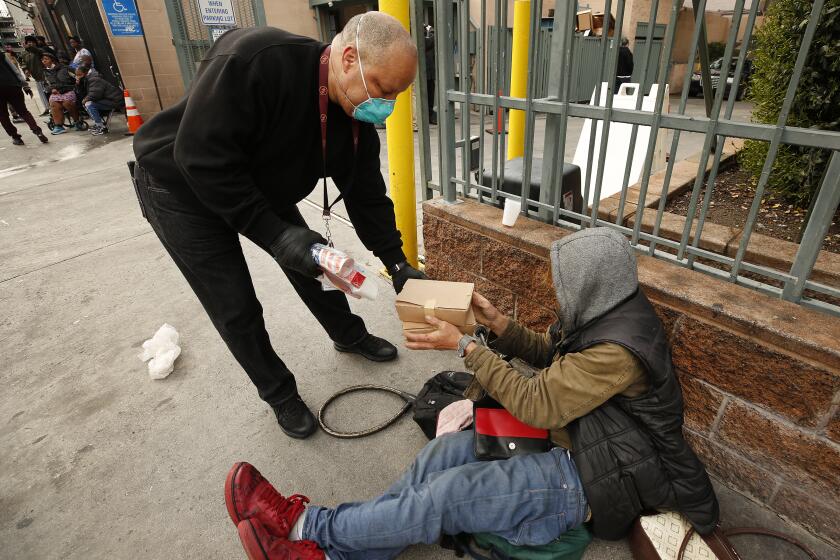How to recession-proof your life amid economic uncertainty

- Share via
Prices for gas, food and rent are soaring. The Federal Reserve has raised interest rates to the highest level since 2018. The U.S. economy has shrunk for two straight quarters.
Economists are divided over whether a recession is looming. What’s clear is that economic uncertainty isn’t going away anytime soon. But there are steps you can take now to be ready for whatever is ahead.
Yiming Ma, an assistant professor at Columbia University, said it’s not a question of if but when a recession will happen. People should prepare but not panic, she said.
“Historically the economy has always been going up and down,” Ma said. “It’s something that just happens; it’s a bit like catching a cold.”
But, she said, some people’s immune systems are better able to recover than others. It’s the same with finances. If you think a recession could destabilize yours, here are some things you can do to prepare.
There is a connection between the Federal Reserve’s efforts to curb inflation and higher mortgage interest rates, but it’s probably not the one you think it is.
Know your expenses and make a budget
Knowing how much you spend every month is key. Ma recommends sitting down and writing how much you spend day to day. This will help you see what’s coming in, what’s going out and which unnecessary expenses you might be able to cut.
“By understanding what money you are getting and what you are spending, you may be able to make changes to help you through tough times,” advises the Federal Deposit Insurance Corp.’s Money Smart, a financial education program.
Budgets often reveal expenses that can be eliminated or impulsive spending that can be avoided with planning.
For guidance creating a budget, free courses such as “ Creating a Budget (and Sticking to It) ” by CT Dollars and Sense, a partnership of Connecticut state agencies, and Nerd Wallet’s Budget Calculator can be good places to start.
On Jan. 1, the Los Angeles Times launched an eight-week newsletter course that teaches readers how to take control of their finances.
Save as you can
The more nonessential expenses you can cut, the more you can save.
It’s not possible for everyone, but Gene Natali, co-founder of Troutwood, an app that helps people create financial plans, said it’s ideal to budget to save enough to cover basic necessities for three to six months.
Programs such as America Saves, a nonprofit campaign by the Consumer Federation of America, can help create a road map.
And if you do have a savings account, it’s important to check whether your bank gives you a good interest rate and shop around if it doesn’t, Ma said.
Her advice is to keep an eye on monthly fees or service charges that might eat into your savings. But don’t limit your options. Online banks sometimes offer better rates than traditional ones.
A week into my budgeting experience, I felt panicked. I kept glaring at my budget. How was knowing how little money I had left over supposed to help me?
Consolidate your loans, and don’t take any more
As interest rates rise, experts recommend that you consolidate your loans to have just one fixed-rate loan and, if you can, pay down as much of your debt as possible.
“Job security tends to be worse when a recession comes; it’s not a great time to accumulate debt,” Ma said.
But paying off your existing debt is easier said than done. The Federal Trade Commission’s Consumer Advice guide for Getting out of Debt can help you make a plan.
With interest rates high, it’s also not a great time to take out new loans for big purchases such as cars, though experts do recommend that if you need durable goods such as vacuum cleaners, stoves or dishwashers, you buy them as soon as possible to avoid future price increases.
Many people are better off paying down their debt on their own rather than taking out another loan.
Visit secondhand stores and yard sales
Allen Galeon, an in-home caregiver in California, has been affected for months by the rising prices of household staples such as groceries and paper towels, as well as gas for his commute.
His son’s favorite Hi-C orange juice, which was $1.99 for a six-pack, is now $2.50.
Since the start of the pandemic, when Galeon cut down from caring for multiple families to a single client to reduce his health risks, his household has dealt with financial instability.
One choice he’s made is to buy items such as clothes and electronics secondhand whenever possible, whether from Goodwill, pawnshops or Craigslist. And Craigslist allows you to search by area, to cut down on driving — which means less gas and inconvenience.
Posting an item on many platforms takes a while. List Perfectly’s software can simultaneously fill fields in up to 12 online sales sites
Negotiate your monthly bills
Since the pandemic, many companies have updated their relief policies and have become more flexible with users, according to Kia McCallister-Young, director of America Saves.
Calling providers of monthly services to negotiate bills — whether it’s utilities, phone service, cable, internet or auto insurance — can lead to meaningful savings, McCallister-Young said. Individuals can ask for the best rate, any available discounts, rebates or coupons that can lead to a lower monthly fee. If a provider is competitive with other companies, there’s an even better chance of getting a discount, she said.
“If you tell them, ‘I’m thinking of changing’ or that you’re shopping around, that helps — if they know you’re considering leaving, they’ll give you the best rate, and the goal right now is to find as much cash flow as possible,” she said.
Check out federal programs such as the Low Income Home Energy Assistance Program, which helps cover bills, and Lifeline, which can assist with phone bills. If you are unsure whether you qualify for any federal or state program, you can call 211, which will connect you with a local specialist who can assist you.
Inflation hasn’t been this high in decades. We compiled a snapshot of prices at ten grocery chains in the L.A. area. How does your local store stack up?
Switch up your groceries
Grocery shopping with a meal plan, buying generic rather than brand-name or purchasing in bulk are some of the recommendations from the Consumer Federation of America.
“A lot of stores have price matching, so if you show them that a competitor is selling the same product at a lower rate, they’ll match that,” McCallister-Young said. “You also want to be looking at the stores that are closest to you, so you’re not spending the extra money you’d save on gas.”
An alternative way to save money on groceries is to check out food-sharing apps such as Olio, which connects people around their community to share extra grocery items, and Too Good to Go, where customers can buy businesses’ surplus food at a discount.
Food banks are seeing increased demand as spiking prices at grocery stores and gas pumps due to inflation cut into budgets.
Look at government assistance programs
Even with these saving and spending practices, a month’s wages aren’t always enough to cover important expenses. If this is your situation, programs around the country are available to assist you.
“Sometimes there just isn’t enough ‘end of the month’ at the end of the month,” said Michael Best, an attorney at the National Consumer Law Center who works on financial services issues.
To make use of these resources, check if you qualify for the Emergency Rental Assistance Program, Supplemental Nutrition Assistance Program, Farmers Market Nutrition Program or the Homeowner Assistance Fund. All of these are federal programs coordinated by state governments. Some states offer additional local programs for their residents.
Sometimes the most important holiday ritual is helping others.
Look for community assistance
If you are experiencing food or housing insecurity, look for nonprofit or community organizations around you. Whether it’s housing support, food or utility assistance, nonprofit organizations around the country can help. National organizations such as Feeding America host food banks in all 50 states.
“We’re already seeing the community reaching out to us in overwhelming numbers because of what’s happening in the country in terms of economic stability,” said Kavita Mehra of Sakhi for South Asian Women, an organization that helps domestic violence survivors in New York City.
Her organization provides housing, food and cash emergency assistance for people in the community. She said that between January and June, her group distributed more than $150,000 in emergency cash assistance to survivors who were having a harder time keeping the lights on and putting food on the table. That’s more than all of last year.
Food assistance organizations such as Ample Harvest, Hunger Free America and Food Rescue US offer maps that allow users to search a nearby food bank by typing their ZIP Code.
Take care of your mental health
Between worrying about the bills and not knowing what your financial future might look like, your stress levels can go through the roof.
“It’s a hectic existence,” Galeon said. “You have to do a lot of managing, and you have to keep a cool head, for the sake of your mental health.”
Debra Kissen, a clinical director of Light on Anxiety CBT Treatment Center, recommends first recognizing when your body is stressed. Then she advises mindfulness exercises such as breathing, touching a wall to calm yourself or completing the “five senses for anxiety relief” exercise.
Most health insurance covers some type of mental health assistance. If you don’t have health insurance, you can look for sliding-scale therapists around the country, including through FindTreatment.gov and the Anxiety and Depression Assn. of America directory.
Morga and Lewis write for the Associated Press financial literacy team, which receives support from the Charles Schwab Foundation. The independent foundation is separate from Charles Schwab and Co. Inc. AP retains complete editorial control of all content.
More to Read
Inside the business of entertainment
The Wide Shot brings you news, analysis and insights on everything from streaming wars to production — and what it all means for the future.
You may occasionally receive promotional content from the Los Angeles Times.


















